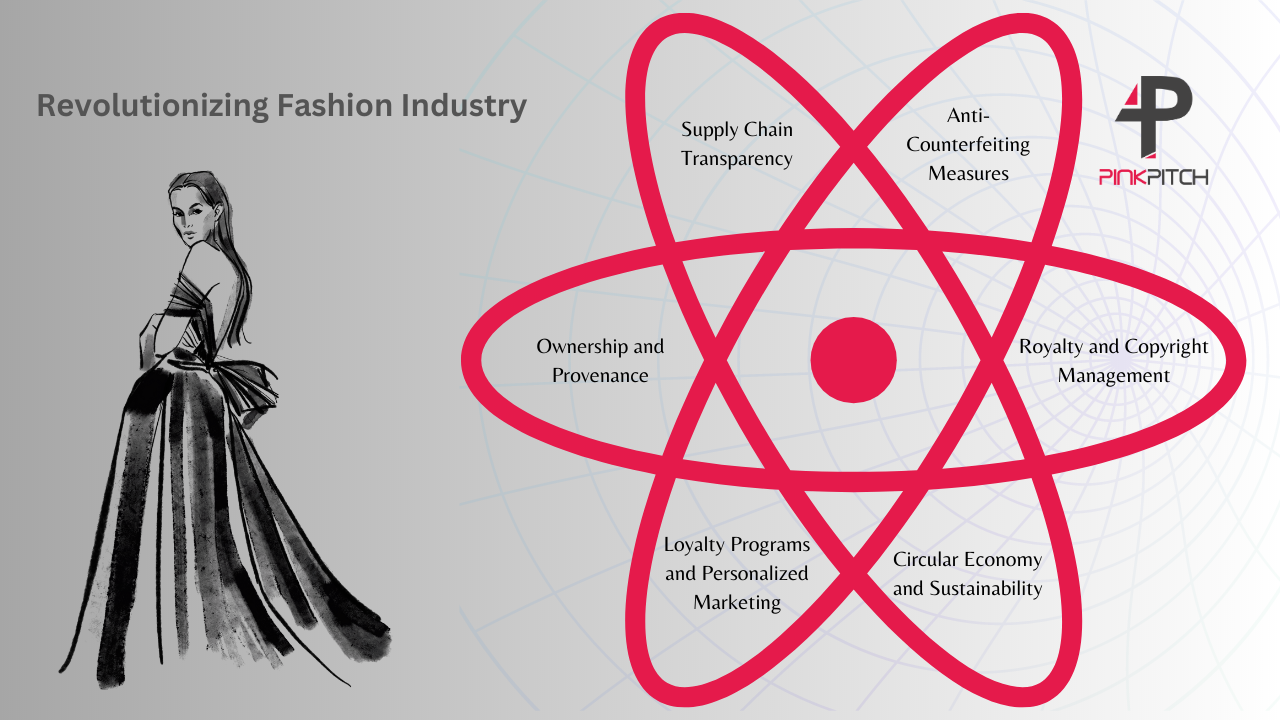Blockchain technology has the potential to bring significant benefits to the fashion and jewelry industry. Here are some ways in which blockchain can impact these industries:
Supply Chain Transparency:
Blockchain can enhance supply chain transparency by providing a decentralized and immutable ledger to record every step in the production and distribution process. This allows stakeholders to trace the journey of raw materials, such as gemstones or fabrics, ensuring authenticity and ethical sourcing. Consumers can have access to detailed information about the product's origins, manufacturing processes, and certifications, empowering them to make informed purchasing decisions.
Anti-Counterfeiting Measures:
Counterfeit products pose a significant challenge for the fashion and jewelry industry. Blockchain can help combat counterfeiting by creating unique digital identities for each product and recording them on the blockchain. These digital identities can include information like design specifications, production details, and ownership history. Consumers can verify the authenticity of a product by scanning its unique identifier, providing assurance of its genuineness.
Ownership and Provenance:
Blockchain can establish verifiable ownership and provenance of luxury goods. By creating digital certificates of authenticity on the blockchain, brands can track the ownership history of their products. This feature is particularly useful for the resale market, as potential buyers can verify the product's authenticity and confirm its ownership history, adding value to pre-owned luxury items.
Collaborative Design and Crowdfunding:
Blockchain platforms can facilitate collaborative design processes, allowing designers, artisans, and customers to participate in the creation of fashion and jewelry items. Additionally, blockchain-based crowdfunding platforms can enable direct engagement between designers and potential customers, bypassing traditional funding mechanisms and fostering a sense of community and collaboration.
Reshaping Rental and Sharing Economy:
Blockchain can enable the development of decentralized platforms for fashion and jewelry rentals, enabling individuals to lend or rent out their items directly to others. Smart contracts can automate rental agreements, deposits, and returns, creating a trusted and efficient sharing economy model.

Royalty and Copyright Management:
Artists and designers in the fashion and jewelry industry can use blockchain to manage royalties and protect their intellectual property rights. Smart contracts on the blockchain can automatically execute royalty payments to designers whenever their designs are used or sold. Additionally, blockchain can timestamp and store digital creations, establishing an immutable record of copyright ownership and infringement.
Loyalty Programs and Personalized Marketing:
Blockchain-based loyalty programs can incentivize customer engagement and reward brand loyalty. By tokenizing rewards on the blockchain, brands can offer unique digital assets, such as limited edition digital collectibles or access to exclusive events. Blockchain-based customer data can also facilitate personalized marketing campaigns, allowing brands to deliver targeted offers and recommendations based on customers' preferences and purchase history.
Ethical Fashion and Sustainability Standards:
Blockchain can enable the verification and certification of ethical fashion and sustainability standards. Organizations and industry bodies can create blockchain-based platforms to verify and track adherence to specific sustainability practices, such as fair trade, organic sourcing, and eco-friendly manufacturing processes. This enables consumers to make more informed choices and support brands that align with their values.
Streamlined Payments and International Transactions:
Blockchain-based payment systems can simplify cross-border transactions and reduce transaction fees by eliminating intermediaries and reducing currency conversion costs. Smart contracts can facilitate automatic payment settlements based on predefined conditions, enabling faster and more efficient transactions for international suppliers and customers.
Circular Economy and Sustainability:
Blockchain can play a vital role in promoting sustainable practices and the circular economy in the fashion and jewelry industry. By tracking and verifying the authenticity of recycled materials, brands can ensure that their products meet sustainability standards. Blockchain-based platforms can facilitate the resale and rental of fashion items, enabling more efficient utilization of resources and reducing waste.
It's important to note that while blockchain technology offers various benefits, its adoption and implementation in the fashion and jewelry industry require collaboration among stakeholders, standardization, and integration with existing systems.
Also read:
-
How to launch NFT smart contract on HeyMint with no technical experience?
-
How you can bargain or interact with sellers on OPENSEA - Introducing Relation One Chat Plugin
-
How Web3 will redefine the fashion industry - PINK PITCH Guide
Try Launchpad by HeyMint and create your own NFT collection.
Subscribe us: